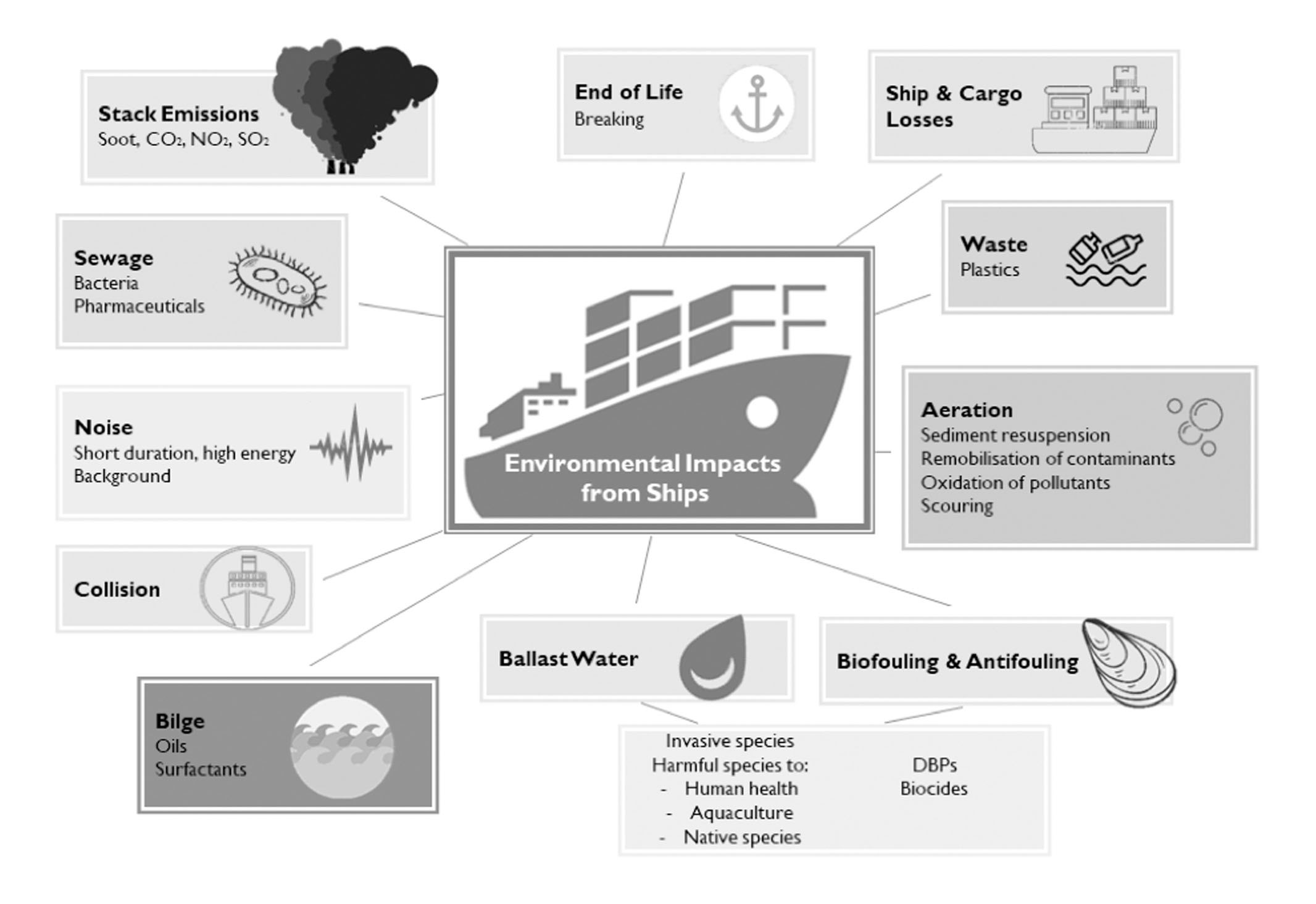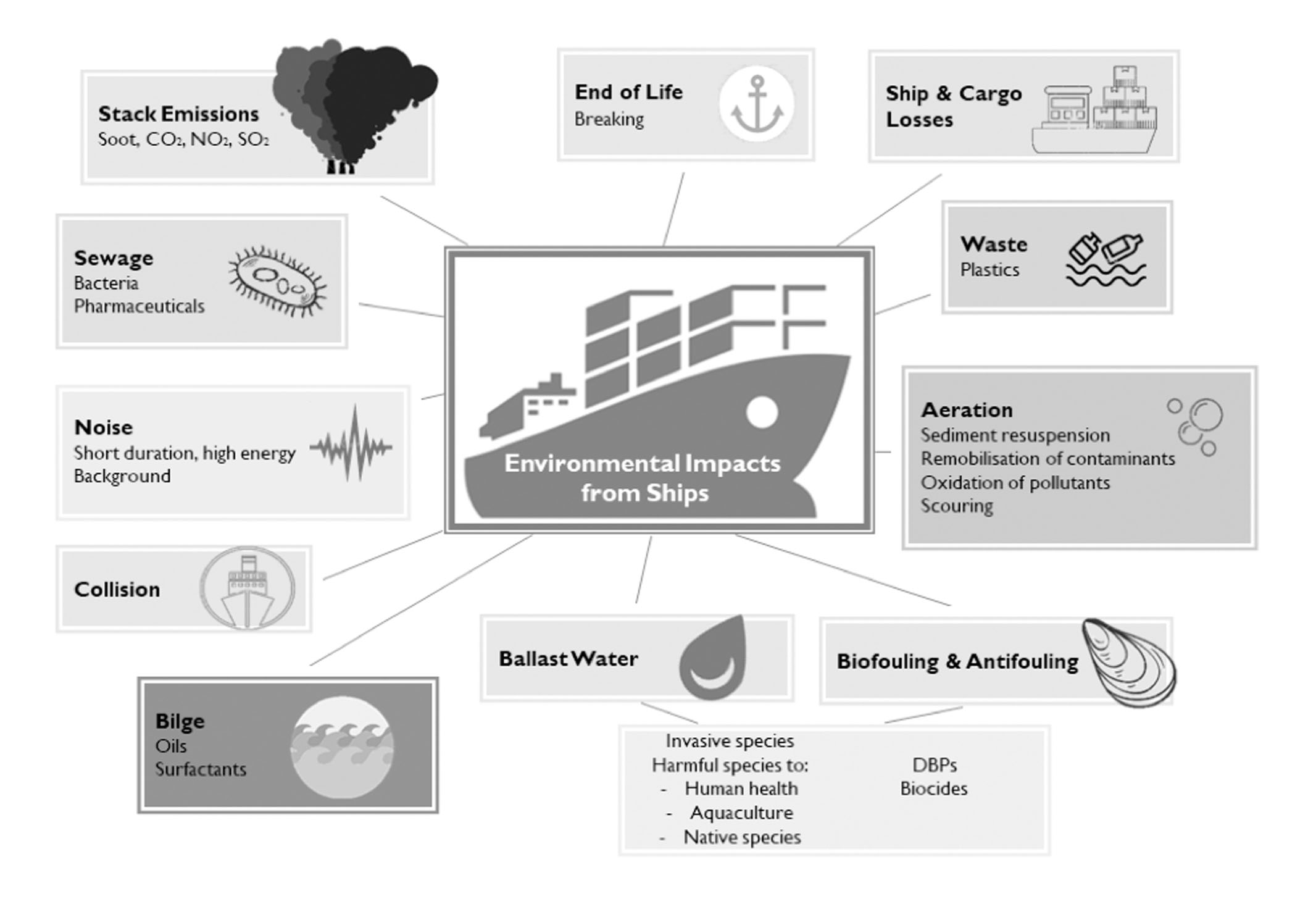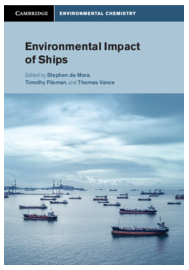Story
‘Environmental Impact of Ships’ book available to buy
16 September 2021

Shipping is responsible for transporting 90% of the world's trade and as global trade continues to increase, it is prime time to consider and manage any negative impacts shipping has on the environment, now and in the future.

With chapters written by eminent international scientists, this book provides a global perspective on the environmental impact of ships, making it a useful reference for advanced students and researchers of environmental science, as well as practitioners of maritime law and policy, and marine business.
Co-Author Professor Stephen de Mora, Chemist and former Chief Executive of Plymouth Marine Laboratory and PML Applications Ltd, said: "We are pleased to present an authoritative text, encompassing interdisciplinary and multidisciplinary perspectives, showing how scientific research can influence marine and maritime management, as well as international law. The technical language was kept to a minimum, creating an easily accessible guide for readers who do not specialise in environmental science. The various chapters, written by a range of international experts, provides the reader with an understanding of the research that helps to safeguard our seas from damage by shipping."
Co-Author Tim Fileman, Marine Scientist at PML and Head of The Ballast Water Centre in PML Applications Ltd where he is also the Technical Manager, commented: “As most of our goods are being transported across the ocean by ship, it is vital that the true environmental impact of ships is more widely understood and reduced or that the cost of this impact is properly factored into the supply chain. There has been progress in recognising their impact but all too often it is not accounted for properly and requires formal regulation at local and international levels so that it is paid for and mitigated”.
Co-Author Dr Tom Vance, Marine Ecologist at PML and Manager for The Centre for Marine Biofouling and Corrosion in PML Applications Ltd, added: “The environmental impact of ships is a global issue and requires a global response to help reduce the effects. One such initiative is the introduction on a more formalised circular economy for shipping, from build to decommission and all the activities in-between, to help break down each stage of a ship’s lifecycle and reduce materials and activities that may degrade the environment immediately or over time.”
This book provides a comprehensive, authoritative and accessible review of the impact shipping has on the environment. It explores topics including pollutant discharges, such as atmospheric emissions, oil, chemical waste, sewage and biocides; as well as non-pollutant impacts including invasive species, wildlife collisions, noise, physical damage, and the environmental effects associated with shipwrecks and shipbreaking. The book also covers the history of relevant international legislation in addition to a section on the shipping industry’s perspective by the former Secretary General of the International Chamber of Shipping.
Author biographies
Professor Stephen de Mora recently retired as the Chief Executive of the Plymouth Marine Laboratory (PML) and PML Applications Ltd. Previously he taught chemistry, environmental science, and oceanography at universities in the United Kingdom (University of Lancaster), New Zealand (University of Auckland) and Canada (University du Québec à Rimouski); and worked at the International Atomic Energy Agency (IAEA) Marine Environment Laboratory in Monaco. Through the IAEA, he worked with several Regional Seas Programme and Global Environment Facility (GEF) projects around the world. Stephen was presented with a Distinguished Service Award in the year that the IAEA was a co-recipient of the Nobel Prize in 2005. He is the only Ad Hominem member of the UK Marine Science Coordination Committee. He serves as a Sargasso Sea Commissioner and on a number of other national and international committees.
Tim Fileman is a Marine Scientist and Head of The Ballast Water Centre in PML Applications Ltd where he is also the Technical Manager. He has over 30 years’ experience in marine science and initially trained as an analytical chemist working on marine pollution related issues for the UK government. Tim later moved into research to follow his interest in organic contaminant behaviour through estuaries and marine biogeochemistry before developing commercial services for PML. He developed the Ballast Water Centre, which grew from his experience in working with the shipping industry to deliver environmental services. He is a Chartered Scientist and Marine Scientist and a Member of the Institute of Marine Engineers, Scientists, and Technologists (IMarEST).
Dr Tom Vance is the Manager of The Centre for Marine Biofouling & Corrosion in PML Applications Ltd. He specialises in marine fouling community ecology and biofouling control. Tom has experience of designing, conducting and interpreting field and laboratory based experiments on marine invertebrate and algal assemblages, both in the U.K and internationally. His practical experience includes diving surveys, field based manipulative experimentation, marine invertebrate taxonomy, advanced image analysis, physiological assessments of fouling species, molecular analysis of biofilms together with multivariate statistics and reporting.
Related information

